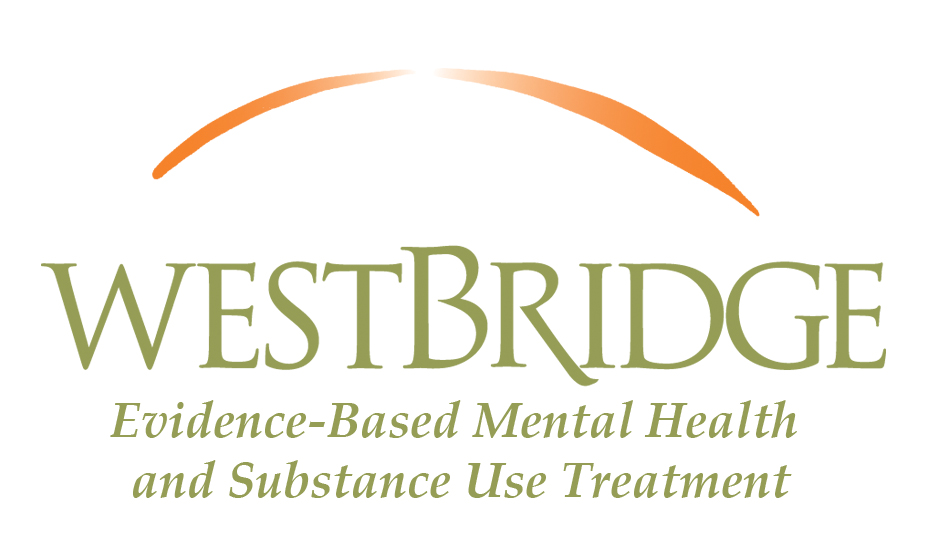Ongoing Results
At WestBridge we believe in looking closely at our own performance. In addition to our outcome study which was published in third-party, peer-reviewed international scientific journal, we monitor our current outcomes on a quarterly basis.
The WestBridge Recovery Index Tracks 14 Measures of Recovery:
Housing, friendship, family, mental health, substance use, spirituality, tobacco use, healthy eating, exercise, sleep hygiene, physical health, personal hygiene, employment and education.
Our latest reports are below for your review.
Mental Health Recovery: Our teams work closely with men at WestBridge to help them monitor and manage their mental health symptoms over time.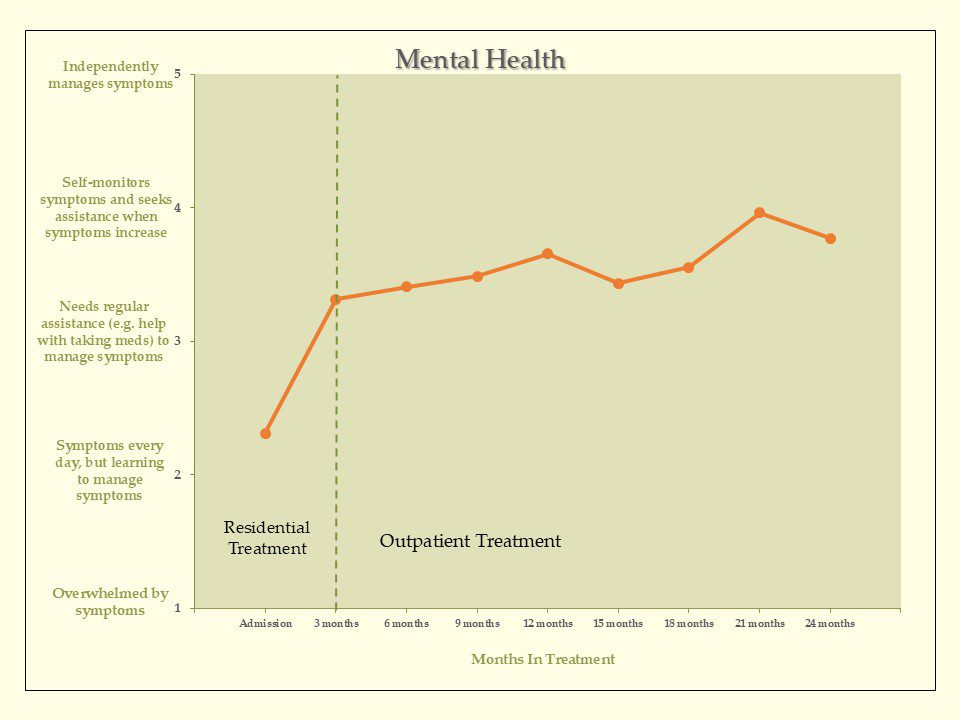
Substance Use Recovery: Our teams work closely with our participants at WestBridge to help them monitor and manage their substance use recovery. We actively work with men to help them commit to sobriety with long periods of abstinence.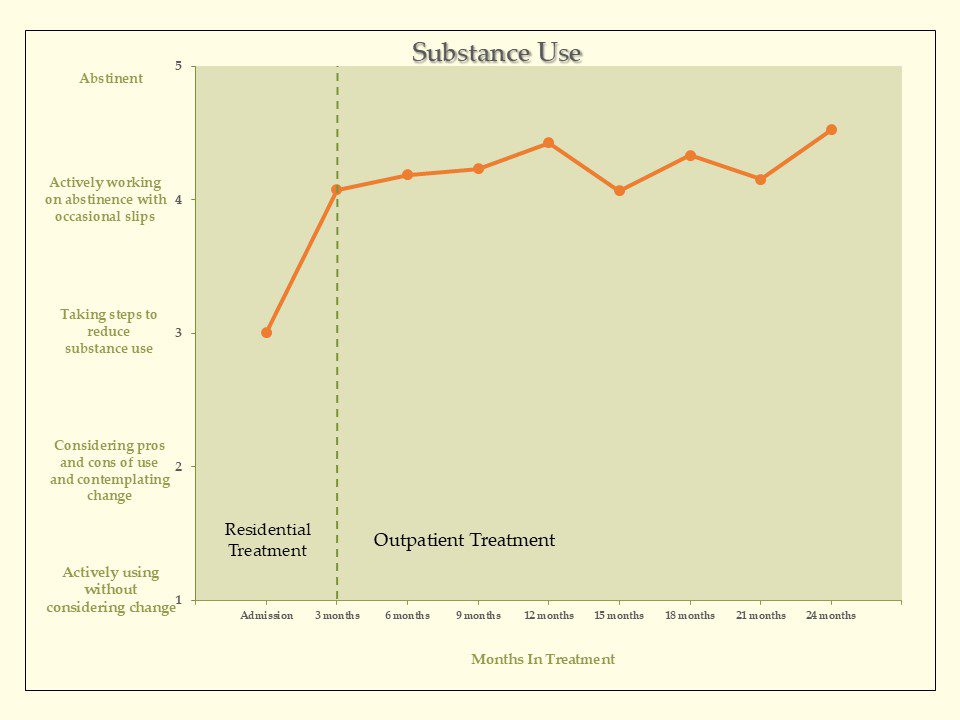
Family: Relationships are such an integral part of sustaining recovery from co-occurring mental illness and substance use disorders. We work with participants and families to encourage positive and healthy interactions over the entire course of treatment.
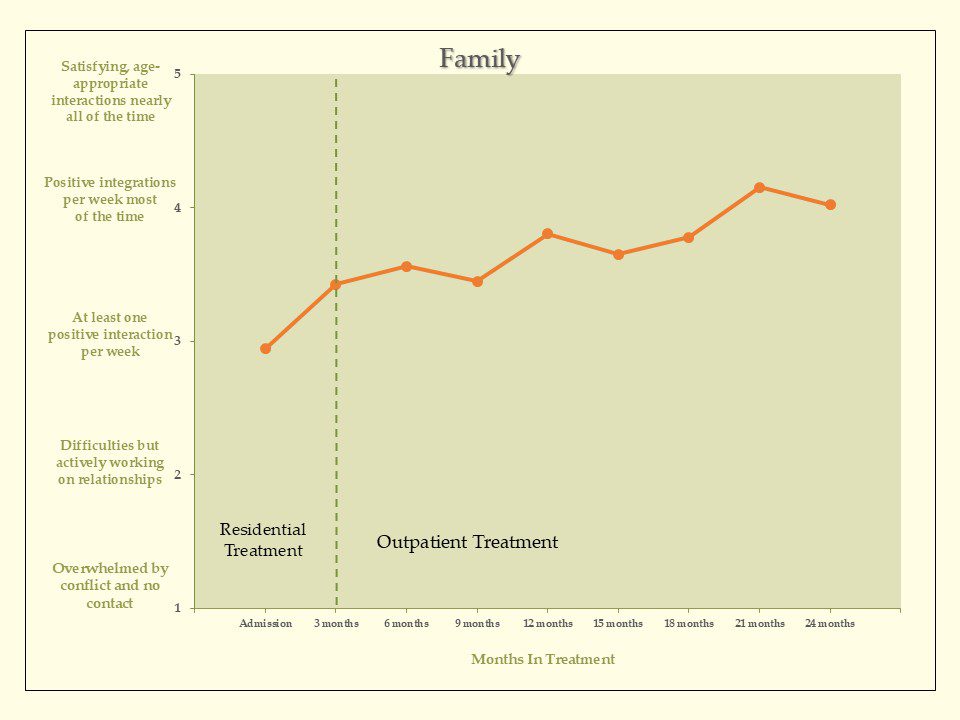
“They were willing to listen, plan and individualize the care needed for each person. That was three months ago, and we are now beginning to see a change in our son that we had all but given up hope was possible. It hasn’t always been easy or pleasant, but it has always been positive and encouraging.”
– A Grateful Father
Friendship: One of the most important aspects of recovery is developing healthy relationships. We encourage our participants to make friends and provide them with the skills to engage in healthy friendships, as well as to improve and maintain these healthy connections over time.
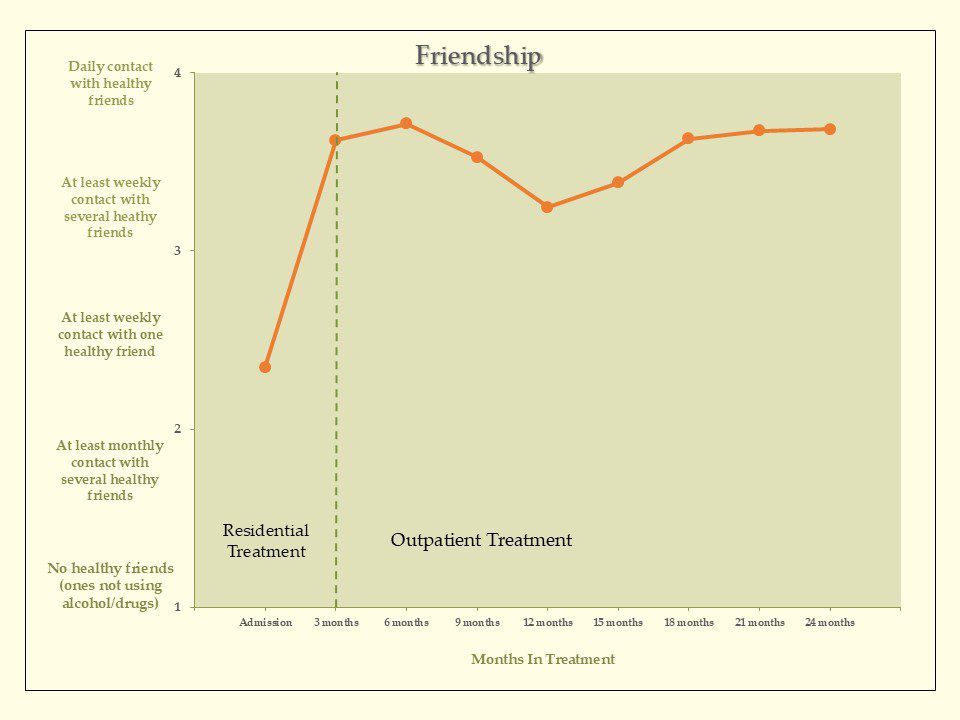
Housing: Throughout residential treatment at WestBridge, men learn the skills necessary to maintain independent housing. With assistance throughout their experience with the care management team we can see steady growth and continued skill building to maintain independent housing with assistance.
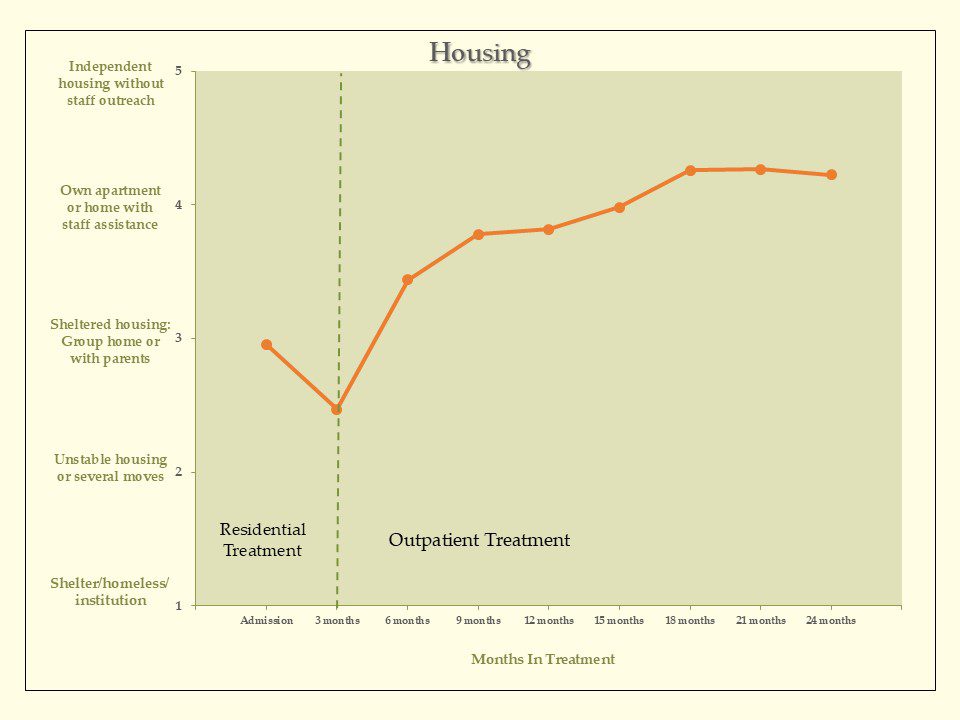
Education/Employment: As noted in the manual for Supported Employment “every job is a success.” We measure our outcomes and combine participants who are participating in college and employment. We have had many individuals complete college and graduate with a degree.
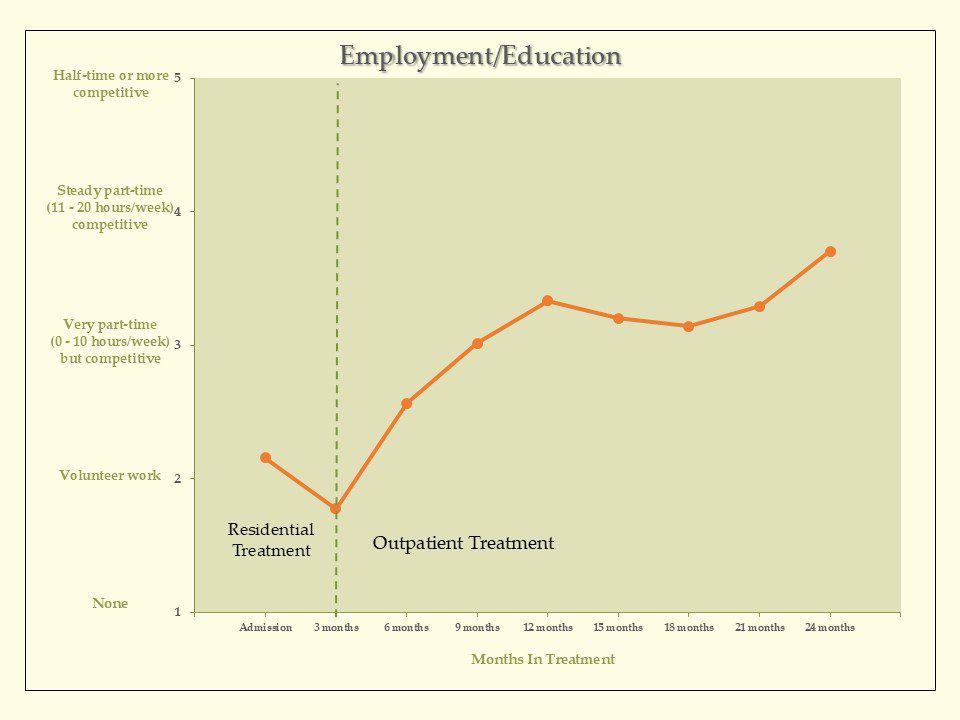
“Treatment gave me my whole life back. It gave my parents their son back. It gave my siblings their brother back.”
– Brian, a Recovering Alumnus
Spirituality: We continue to help our participants grow and live by their own values and understand their place in the world. Our spirituality outcomes measure how participants identify and begin to develop practices to help them sustain their recovery.
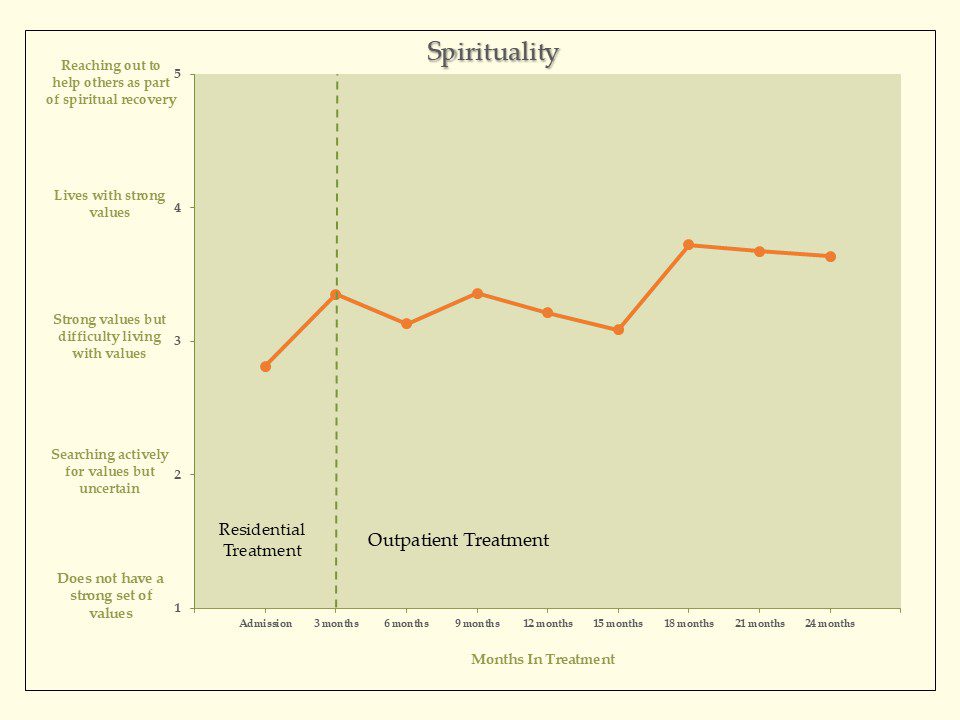
Tobacco Use: Statistics show that it takes seven attempts before individuals experience success in quitting nicotine. We work with our participants to develop ambivalence and move towards successful nicotine recovery.
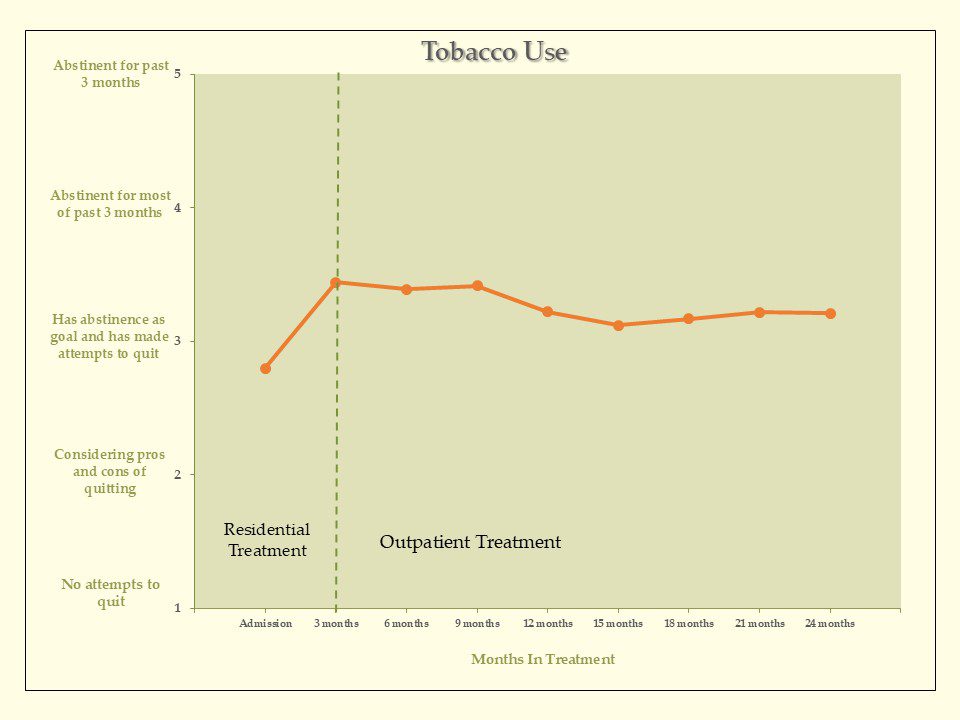
Healthy Eating: Nutrition is such an important part of brain health and at WestBridge we work with participants to develop healthy eating habits. Maintaining these new habits take time, energy, and effort. We work with men in the residential program and help support it through their transition and into the Assertive Community Treatment Program.
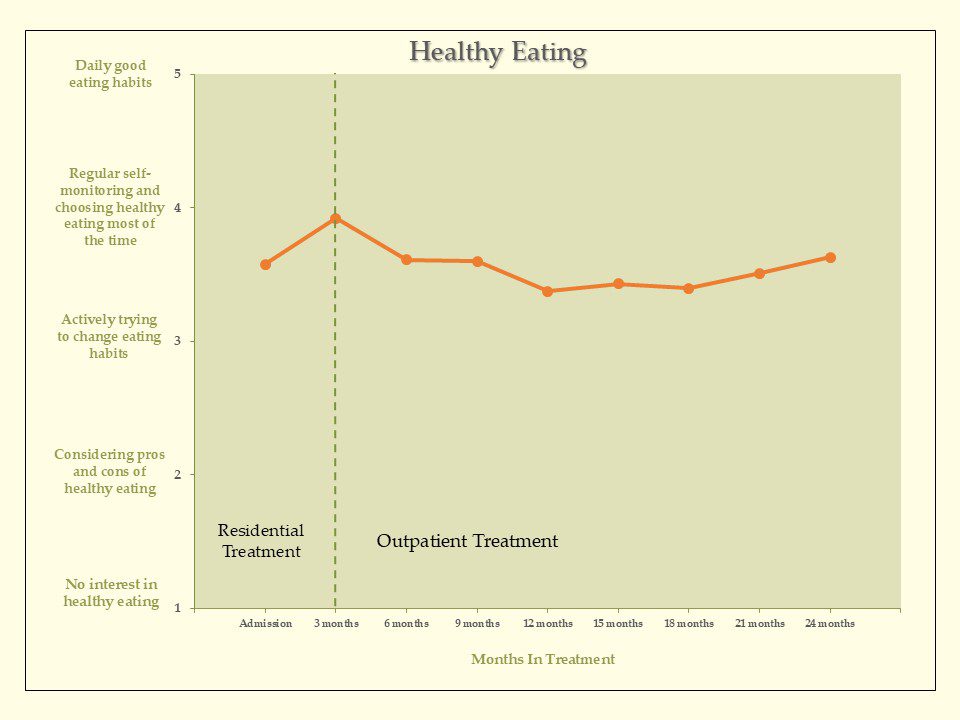
“I am a firm believer that a person can get well regardless of where they are. All one needs is honesty, open-mindedness, and willingness. WestBridge helped me take those three things and turn them into the start of my life-long recovery.”
– A Recovering Alumnus
Exercise: Physical activity is such an important part of brain health and at WestBridge we work with men to develop a new exercise regimen. Maintaining these new habits take time, energy, and effort. We work with participants in the residential program and help support it through their transition and into the Assertive Community Treatment Program.
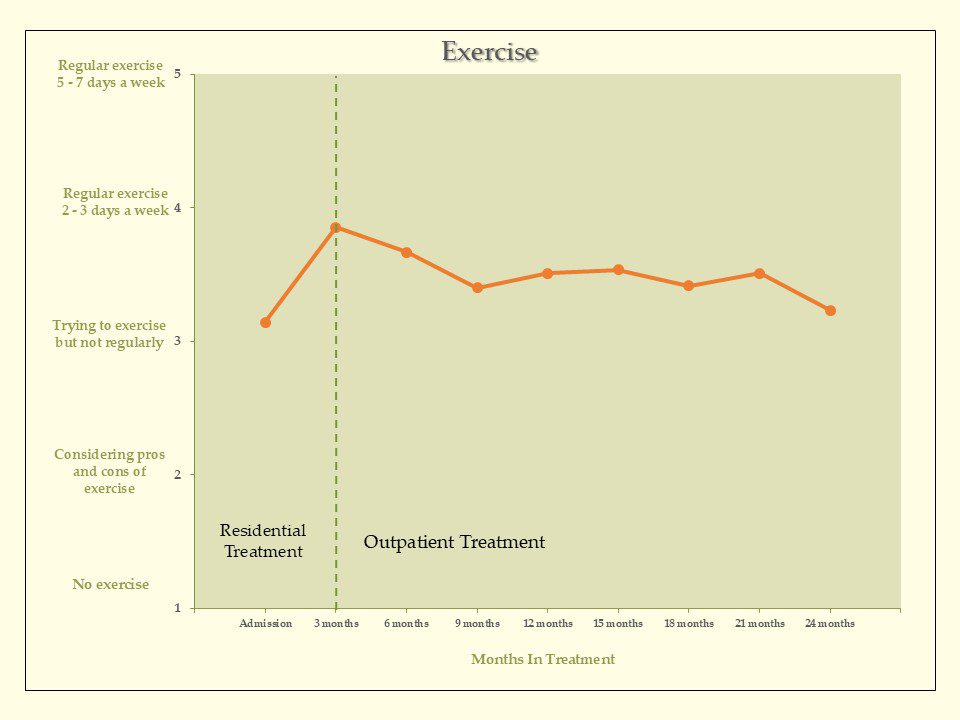
Sleep Hygiene: We know that vital brain functions occur during sleep. Sleep is a major factor in maintaining mental health and substance use recovery. We work with men throughout their treatment at WestBridge to help improve sleep patterns and to make lifestyle changes that support healthy sleep.
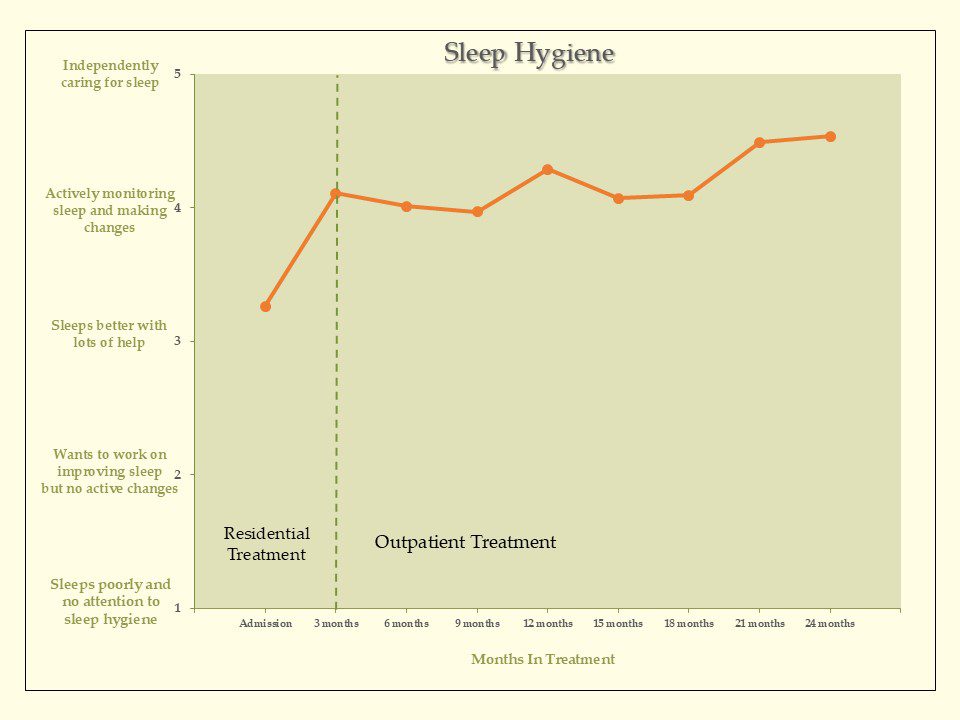
Physical Health: At WestBridge we work to help manage and sustain the physical wellness of participants. This dimension, along with healthy eating, exercise, and sleep is part of our holistic approach to treatment.
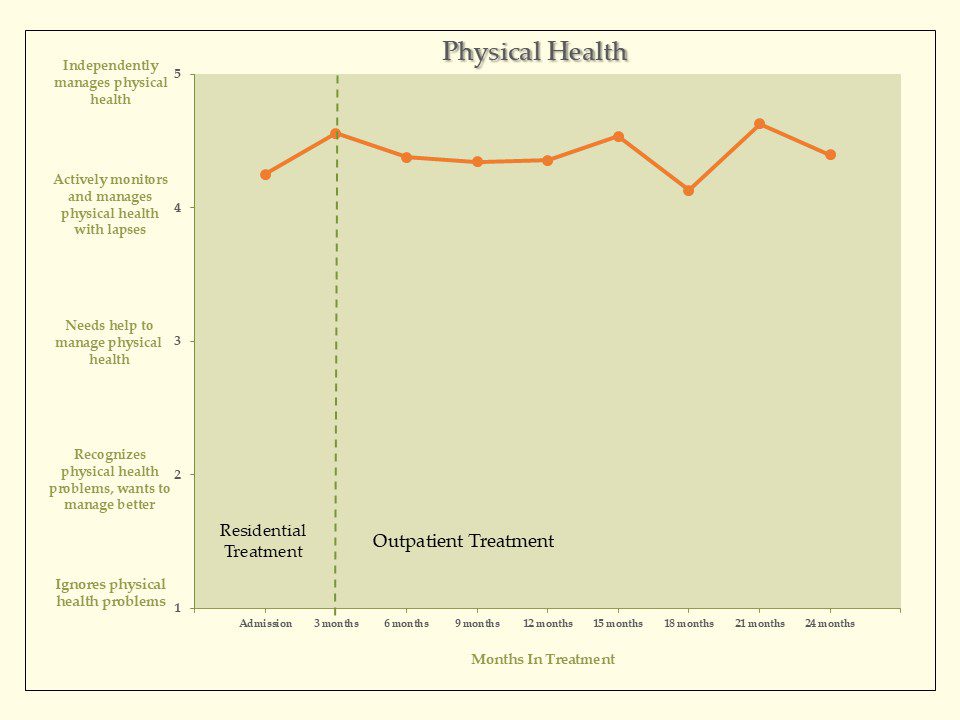
Personal Hygiene: Hygiene is an important factor in the overall wellness of an individual. At WestBridge we work with men to achieve active monitoring of their hygiene throughout the course of treatment, from residential and continuing into the Assertive Community Treatment Program.
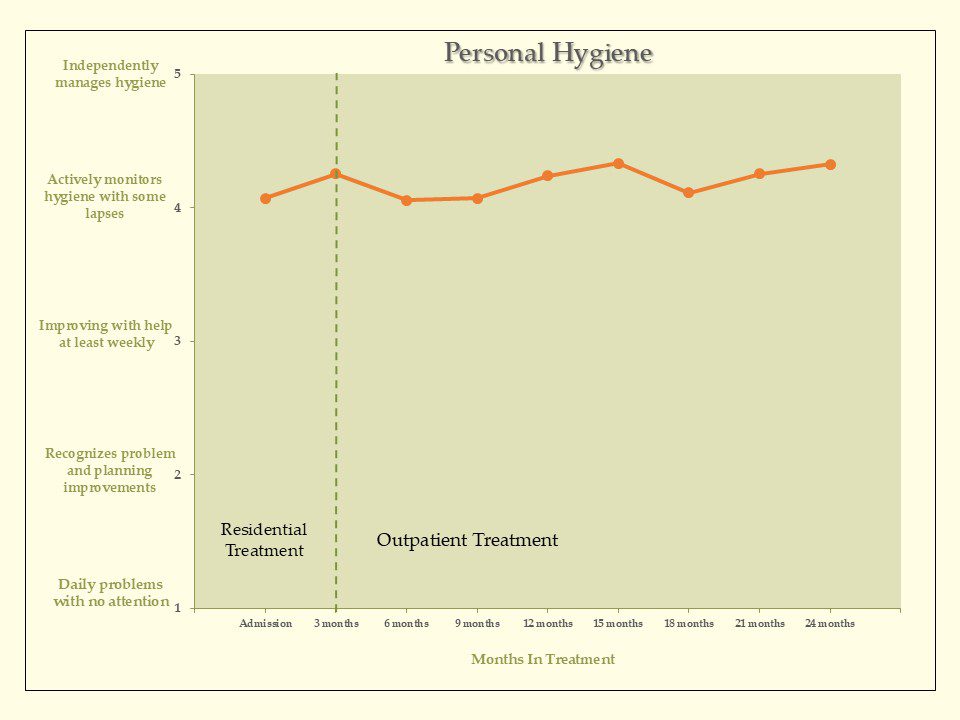
From the Experts: An Excerpt from
WestBridge – Changes in recovery over time in the program
By Valerie A. Noel, PhD and Robert E. Drake, MD
“Across all participants assessed at WestBridge, on average participants have shown tremendous gains in residential treatment. Men who continued with the WestBridge Assertive Community Treatment (ACT)* program after residential treatment showed maintenance and/or improvement of these gains while in the outpatient programs.
*ACT is now known as The WestBridge Community Integrated Program (CIP) and we anticipate similar results.
Participants show significant success in achieving independent living, reaching/maintaining abstinence, independent control of their mental health symptoms, increased time spent with non-drug using friends, and independently managing their sleeping habits to maintain good sleep hygiene.
Participants also show a significant increase in the number of hours worked and number of courses enrolled in higher education, improved relationships with family members, greater awareness of their spirituality, and independent management of their physical health.”
